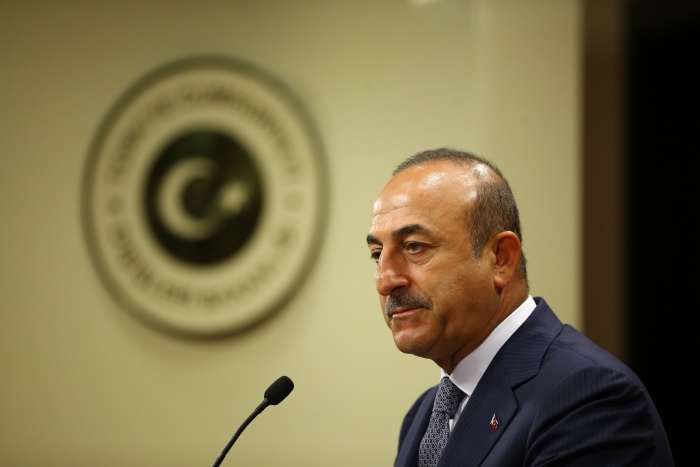Turkey’s Minister of Foreign Affairs Mevlüt Çavuşoğlu has suggested that some Western countries are extending support for Hayat Tahrir al Sham (HTS), a jihadist group based in northern Syria, the pro-government Akşam daily reported on Thursday.
Speaking on a TV show to address the main issues on Turkey’s foreign policy agenda, Çavuşoğlu claimed that some Western countries support the al-Qaeda-linked group financially and otherwise in an effort to undermine an agreement forged in September between Russia and Turkey to purge jihadists from Idlib province, an opposition enclave that lies in Syria’s northwest corner.
“Where will they go when they are disbanded? That is the biggest question. The Russians offered to cooperate. Their views are clear on this, they say, ‘Let’s wipe them out here.’ The source countries don’t care what happens as long as these militants don’t return there,” Çavuşoğlu said, adding: “Yet they have no idea what to do with them. At first, they used to release them; however, they understood the seriousness of the problem in the aftermath of the attacks that took place in Brussels and Paris. They used to release them without even questioning them; now they don’t want them back.”
“Some Western countries are supporting HTS in order to encourage them to break the Idlib deal. I don’t believe the HTS has gained strength, but they might become more aggressive. They had to retreat from some of their territories, and they are trying to return there,” Çavuşoğlu said.
The Turkish-Russian deal established a buffer zone around the rebel-held Idlib, running 15 to 20 kilometers (9-13 miles) deep into rebel territory that was to be free of heavy weaponry and jihadists by mid-October, in order to stave off an offensive against the region by the Syrian government led by Bashar al-Assad.
Since then, Russia has repeatedly warned that the agreement had not been not fully implemented and that the situation was rapidly deteriorating as the territory was almost under full control of jihadist militants.

